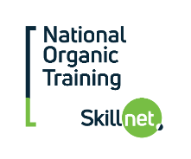-
Courses

Courses
Choosing a course is one of the most important decisions you'll ever make! View our courses and see what our students and lecturers have to say about the courses you are interested in at the links below.
-
University Life

University Life
Each year more than 4,000 choose University of Galway as their University of choice. Find out what life at University of Galway is all about here.
-
About University of Galway

About University of Galway
Since 1845, University of Galway has been sharing the highest quality teaching and research with Ireland and the world. Find out what makes our University so special – from our distinguished history to the latest news and campus developments.
-
Colleges & Schools

Colleges & Schools
University of Galway has earned international recognition as a research-led university with a commitment to top quality teaching across a range of key areas of expertise.
-
Research & Innovation

Research & Innovation
University of Galway’s vibrant research community take on some of the most pressing challenges of our times.
-
Business & Industry

Guiding Breakthrough Research at University of Galway
We explore and facilitate commercial opportunities for the research community at University of Galway, as well as facilitating industry partnership.
-
Alumni & Friends

Alumni & Friends
There are 128,000 University of Galway alumni worldwide. Stay connected to your alumni community! Join our social networks and update your details online.
-
Community Engagement

Community Engagement
At University of Galway, we believe that the best learning takes place when you apply what you learn in a real world context. That's why many of our courses include work placements or community projects.
Beekeeping
Diploma in Scientific Studies (Apiculture) - Bees & Beekeeping
Centre for Adult Learning and Professional Development- Title of Award
- Diploma
- Course Code
- SC4
- Delivery
- On Campus
- NFQ
- 7
- Award Type
- Minor
- Next Intake
- September 2026
- Duration
- 2 years, part-time
- ECTS Weighting
- 30
Why Choose This Course?
Course Information
In this course students will learn about Entomology (the world of insects) including the diversity of insects, their structure and general biology and their importance to humans. Of course, a lot of focus will be placed on the honeybee. We will also study the complex behaviour of social insects (bees, wasps and ants) and how this is relevant to beekeeping. Honeybee health is of huge importance globally right now and one module will cover this in detail while another will investigate the evolution of the insect group that contains bees. In addition to these topics, practical modules will take students from the basics of learning how to be a beekeeper through to some advanced elements of this area including bee breeding, and the production of honey and other bee products.
Discounted/Part-Funded Places Through NOTS
Eligible participants in the Republic of Ireland can avail of a 40% cost reduction on this course through our course partner's National Organic Training Skillnet (NOTS).

This course is comprised of six modules (5 ECTS) to be taken over two years, three modules per year (see list below). On-campus workshops include:
- Apiary Management
- Honey Bee Health
- The production of Honey for sale
- Preparation of Beeswax products (balms, furniture polish, candles & mead)
Curriculum Information
Curriculum information relates to the current academic year (in most cases).Course and module offerings and details may be subject to change.
Glossary of Terms
- Credits
- You must earn a defined number of credits (aka ECTS) to complete each year of your course. You do this by taking all of its required modules as well as the correct number of optional modules to obtain that year's total number of credits.
- Module
- An examinable portion of a subject or course, for which you attend lectures and/or tutorials and carry out assignments. E.g. Algebra and Calculus could be modules within the subject Mathematics. Each module has a unique module code eg. MA140.
- Optional
- A module you may choose to study.
- Required
- A module that you must study if you choose this course (or subject).
- Semester
- Most courses have 2 semesters (aka terms) per year.
Year 1 (15 Credits)
RequiredZO1104: Apiary Management
ZO1104: Apiary Management
Trimester 3 | Credits: 5
This module will introduce the student to the basic principles of beekeeping and apiary management including standard operating procedures for inspections and record keeping and managing swarming as well as assessing risk. It will also give an overview of the beekeeping year, types of hives and what boxes and equipment are needed to keep bees and understanding about pollen. Also of importance are identifying and managing diseases, basic genetics, basic queen rearing and managing colonies through the entire year.
(Language of instruction: English)
Learning Outcomes
- Establish an apiary and know what equipment is required.
- Perform a full inspection of a honeybee colony
- Recognise common colony diseases
- Manage space and prevent swarming,
- Perform basic queen rearing and colony splits
- Manage a colony through a full year cycle
- Understand the importance of pollen and be able to identify pollen under a microscope
Assessments
- Continuous Assessment (40%)
- Oral, Audio Visual or Practical Assessment (60%)
Teachers & Administrators
Click a name to search for their researcher profile. Note: Only teachers publish research profiles.
The above information outlines module ZO1104: "Apiary Management" and is valid from 2025 onwards.Note: Module offerings and details may be subject to change.
RequiredZO1101: Entomology
ZO1101: Entomology
Semester 1 | Credits: 5
This module is the study of insects including their relationships to humans and the environment.
it will include focus on Insect Systematics and Diversity, Insect anatomy and physiology, their general biology and importance in agriculture including beekeeping, industry, and forensics.
The content and learning outcomes of this modules are aligned to sustainable development goals 3 (Good Health and Well being) and 15 (Life on Land).
(Language of instruction: English)
Learning Outcomes
- Describe general insect morphology, anatomy and basic biology.
- Elucidate the diversity of and relationships between Insects.
- Discuss insect reproduction and development
- Evaluate how honeybee biology contributes their success.
- Assess the various roles that insects play in agriculture, environment and human health with particular emphasis on pollinators, and honeybees specifically
Assessments
- Continuous Assessment (100%)
Teachers & Administrators
Click a name to search for their researcher profile. Note: Only teachers publish research profiles.
The above information outlines module ZO1101: "Entomology" and is valid from 2024 onwards.Note: Module offerings and details may be subject to change.
RequiredZO1102: Behaviour in Social Insects
Year 2 (15 Credits)
RequiredZO1205: Honey Bee Products
ZO1205: Honey Bee Products
Trimester 3 | Credits: 5
This module will develop the students knowledge of honey production and its preparation for show and sale. iI will also deepen the students knowledge on other bee-related products including production of queens and various bioproducts (e.g. propolis). The content and learning outcomes for this module are aligned to sustainable development goals 3 (Good Health and Wellbeing) and 15 (Life on Land).
(Language of instruction: English)
Learning Outcomes
- Give a detailed account of the composition and properties of nectar and honey and the conversion of nectar into honey
- Give an account of the composition, physical characteristics and uses of beeswax and how to produce clean wax from the hive
- Describe other bee products and their potential uses and marketing.
- Produce wax, honey or bioproduct suitable for sale or show
- Elucidate considerations and challenges involved in the preparation of bee products for show and/or sale
Assessments
- Continuous Assessment (60%)
- Oral, Audio Visual or Practical Assessment (40%)
Teachers & Administrators
Click a name to search for their researcher profile. Note: Only teachers publish research profiles.
The above information outlines module ZO1205: "Honey Bee Products" and is valid from 2025 onwards.Note: Module offerings and details may be subject to change.
RequiredZO1204: Honey Bee Genetics
ZO1204: Honey Bee Genetics
Semester 1 and Semester 2 | Credits: 5
This module will provide detailed information for students on aspects of genetics impacting honey bees and their management and breeding. This module covers basic genetic topics on honey bee chromosomes, DNA and Mendelian genetics. We will introduce students to the particular genetics associated with honey bees including genetic aspects of asexual/sexual phases in the life cycle, inheritance and the genetic basis of sex determination including parthenogenesis. The module will also introduce some concepts in evolutionary and ecological genetics impacting honeybee breeding, diversity and conservation.
The module content and learning outcomes of this module are aligned to sustainable development goals 3 (Good health and Wellbeing) and 15 (Life on Land)
(Language of instruction: English)
Learning Outcomes
- Apply basic theories of genetics and inheritance to honey bees.
- Describe how the principles of asexual/sexual reproduction and associated genetics apply to the honey bee.
- Consider the factors influencing evolution of honey bees giving rise to, and impacting, their diversity.
- Elucidate the historical biogeography of honeybee species and subspecies how they have been impacted by human activity in recent times.
- Discuss applications of genetic concepts to honey bee breeding.
- Describe current molecular methods for investigating and displaying genetic variation
- Write on relevant topics with confidence
Assessments
- Continuous Assessment (80%)
- Department-based Assessment (20%)
Teachers & Administrators
Click a name to search for their researcher profile. Note: Only teachers publish research profiles.
Reading List
- "Biology: a global approach" by Campbell
Note: Module offerings and details may be subject to change.
RequiredZO1202: Honeybee Health
ZO1202: Honeybee Health
Semester 2 | Credits: 5
This module will introduce students to the factors impacting honeybee health. This includes bee-related factors that regulate honeybee health such as social immunity, influence of microbiome and plant-bee interactions. It will then introduce students to the factors that negatively affect bee health including diseases, pathogens and poisons, habitat decline, and other human influences. Finally it will also include best practice for hygiene and information on notifiable disease protocols.
(Language of instruction: English)
Learning Outcomes
- Discuss the mechanisms of immunity in Apis mellifera.
- Identify current parasites of honeybees in Ireland and more widely, considering potential threats to honeybee health from imported bees and other products.
- Describe the life cycle of the main honeybee pathogens.
- Explain the importance of plants to honeybee health.
- Link the diversity of microbes associated with honeybees with their influence on honeybee health.
- Discuss human-mediated factors involved in decline of honeybee health.
- Apply best practice in apiary management hygiene and notifiable disease protocols
Assessments
- Continuous Assessment (60%)
- Oral, Audio Visual or Practical Assessment (40%)
Teachers & Administrators
Click a name to search for their researcher profile. Note: Only teachers publish research profiles.
The above information outlines module ZO1202: "Honeybee Health" and is valid from 2024 onwards.Note: Module offerings and details may be subject to change.
This is the only course of its kind at third level in Ireland. We support beekeepers, farmers, gardeners, entrepreneurs and anyone passionate about environmental protection, sustainability & pollinator conservation.
Graduates often go on to share their knowledge in rewarding and flexible ways. Some become beekeeping advisors, take part in research projects, or even continue on to PhD study. Others enjoy teaching, giving talks on honey bee genetics and anatomy, running beekeeping classes at local clubs, or creating learning materials for schools. Many write articles for national beekeeping magazines, support county councils with swarm rescue and heritage events, and play an active role in protecting bees through pollinator, rewilding, and Asian hornet monitoring initiatives.
As this course is delivered via Blended learning most of the material is delivered online, please visit to our Online Learning webpage for further details on what is required to participate in a blended learning course.
Assessment is continuous throughout each module. On average, there are four assessments throughout each module, and the mode of assessment varies. Summative feedback is provided after each assignment. The assessment types include, but are not limited to:
- Online MCQs (Multiple choice quizzes)
- Workbook-style interactive online quizzes
- Written lab reports and/or short essays
- Active assessments on campus (during workshops)
- Written or recorded oral colony health self-reporting
- Poster presentations
- Practical skills assessments
Peer learning and support is an integral part of the active assessments during on-campus workshops.
Course Administrator
Tel: 091 492144
E-mail: artspt@universityofgalway.ie
If you do not meet the standard entry criteria for this course, you may gain entry through our Recognition of Prior Learning (RPL) policy. Applicants may also be able to earn module exemptions based on their prior learning. Find out more here.

Technical & Scientific Transferable Skills:
Laboratory skills
- Safe handling of biological material that is infectious to honey bees.
- Biosecurity protocols to prevent the spread of honey bee diseases.
- Use of compound microscopes (bacteria, fungi & pollen) and binocular microscopes to examine flower structure and honey bee anatomy.
Data Analysis, Interpretation & Record Keeping
- Accurately assess and record the physiological state of a honey bee colony and various phases of the colony life cycle, and interpret the results for best colony management. Track the movement of colonies.
- Interpret results of genetic testing so that native honey bees are selectively bred in favour of hybridised bees.
- Record the use of licensed medications in line with HPRA and EU requirements.
Quality Assurance
- Safe food production & traceability of honey back to the apiary.
- Safe handling of licensed medications.
Soft & Interpersonal Transferable Skills:
Problem solving
Assessing colony physiology and health and taking appropriate action.
Communication & Presentation
- Oral and written communication skills.
- Content creation (learning materials for local club training, podcasts, websites, social media posts & interviews).
- Citizenship including citizen science in monitoring for alien species and logging wild honey bee colonies on the NPWS database.
- Health & safety (manual handling, working with hot wax, biohazardous material, biosecurity etc).
Accreditations & Awards
Meet our Employers
Entry Requirements and Fees
Candidates must already own or have access to (or commit to acquire) at least one hive of bees to be able to complete the Diploma. While not essential, candidates should ideally be a member of a beekeeping association and have completed an introductory beekeeping course. If students own their own hive, they should register their hives with DAFM.
Entry requirements for part-time students can be found here (i.e. age, english language requirements etc.).
Applications are made online via the University of Galway Applications System. This course is listed under Adult Learning Undergraduate\Postgraduate, CPD, Micro-credentials & Summer School Applications.
Please visit our How to Apply page for Application tips and Supporting Documents information.
Fees for Academic Year 2026/27
| Course Type | Year | EU Tuition | Student Contribution | Non-EU Tuition | Levy | Total Fee | Total EU Fee | Total Non-EU Fee |
|---|---|---|---|---|---|---|---|---|
| UG Diploma | 1 | €1,550 | €2,050 | €35 | €1,585 | €2,085 |
Why University of Galway?
World renowned research led university nestled in the vibrant heart of Galway city on Ireland's scenic West Coast.
Downloads
Meet Our Alumni
Introduction
The main aim of this course is to provide quality third level education on bees and beekeeping. This course may be of interest primarily to beekeepers or those considering becoming a beekeeper. It will also be of interest to anyone who has an interest in entomology, pollinators and the decline of bees and pollinators more generally.































